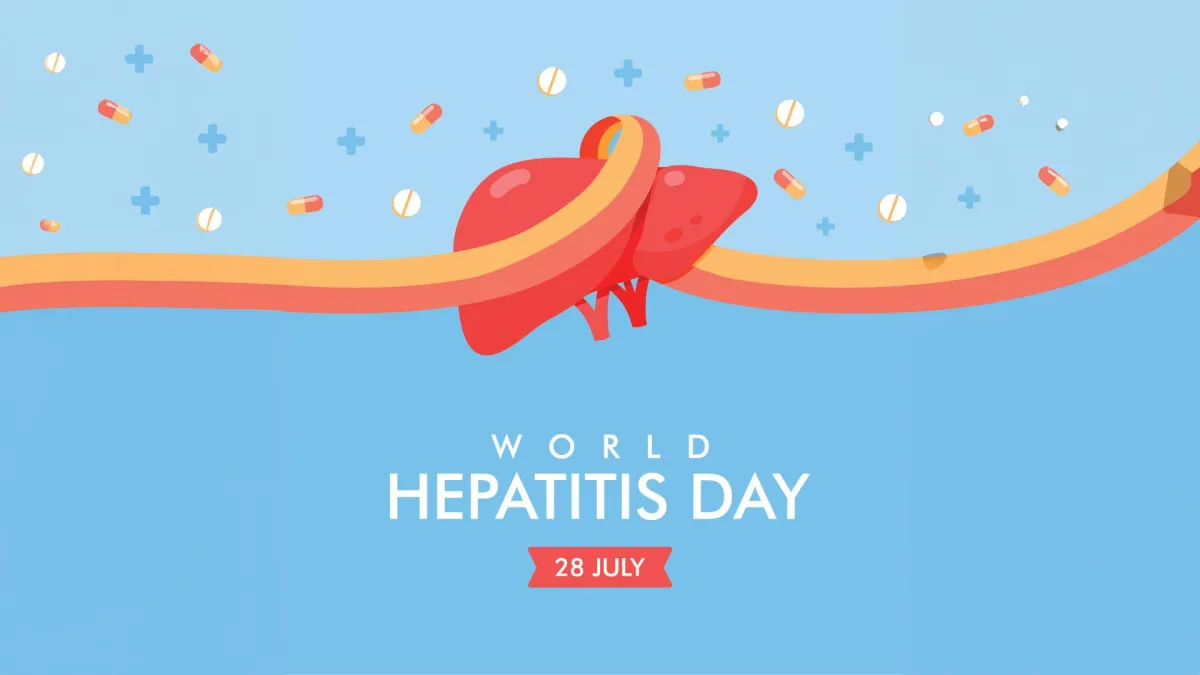Blogs

World Hepatitis Day - Raising Awareness and Improving Care
Raising Awareness and Improving Care.
World Hepatitis Day, observed annually on July 28th, serves as a global initiative to raise awareness about viral hepatitis and advocate for enhanced access to prevention, testing, and treatment services. In Australia, the importance of staying informed and proactive in managing hepatitis cannot be overstated, given its significant impact on public health.
Understanding Hepatitis
Hepatitis refers to inflammation of the liver, often caused by viral infections. The five main types of viral hepatitis—A, B, C, D, and E—each have distinct modes of transmission and health implications:
Hepatitis A (HAV): Typically spread through ingestion of contaminated food or water. This type is usually acute and self-limiting, meaning it resolves on its own without chronic effects.
Hepatitis B (HBV): Transmitted through contact with infectious body fluids, such as blood and semen. HBV can lead to chronic liver disease, cirrhosis, and liver cancer.
Hepatitis C (HCV): Primarily spread through blood-to-blood contact, often via shared needles or unsterilized medical equipment. Chronic HCV infection can result in severe liver damage, cirrhosis, and liver cancer.
Hepatitis D (HDV): Only occurs in individuals already infected with HBV and can lead to more severe complications, including rapid progression to cirrhosis.
Hepatitis E (HEV): Spread mainly through contaminated water and generally causes acute infection. It can be severe in pregnant women, leading to high maternal and fetal mortality rates.
The Impact of Hepatitis in Australia
Hepatitis B and C are particularly concerning in Australia due to their potential to cause chronic liver disease and liver cancer. According to the latest data:
Over 230,000 Australians are living with chronic hepatitis B.
More than 130,000 Australians have chronic hepatitis C.
Hepatitis B and C together are responsible for over 80% of liver cancer cases in Australia.
Current Challenges in Hepatitis Management
Despite significant advancements in treatment, several challenges remain in the management of hepatitis in Australia:
Awareness and Education: Many individuals at risk or living with hepatitis are unaware of their status, underscoring the need for increased public and professional awareness.
Access to Care: Barriers such as stigma, discrimination, and geographical remoteness can impede access to testing and treatment services.
Vaccination and Prevention: Although vaccines for hepatitis A and B are available, uptake rates need improvement, particularly among high-risk populations.
Treatment Adherence: Ensuring patients adhere to antiviral therapy, especially for chronic hepatitis B and C, is critical for successful treatment outcomes.
Advocating for Better Hepatitis Care
World Hepatitis Day provides an opportunity for Australian practitioners to advocate for and implement improved hepatitis care strategies. Key approaches include:
Screening and Early Detection: Regular screening for hepatitis B and C, particularly in high-risk populations, to ensure early diagnosis and timely treatment.
Patient Education: Educating patients about the transmission, prevention, and treatment of hepatitis to reduce stigma and promote informed health choices.
Vaccination Programs: Promoting hepatitis A and B vaccination, especially in vulnerable communities, to prevent new infections.
Integrated Care Models: Implementing integrated care models that combine medical, psychological, and social support to address the comprehensive needs of hepatitis patients.
Research and Innovation: Supporting research into new treatments and prevention strategies, including efforts to develop a vaccine for hepatitis C.
World Hepatitis Day underscores the critical importance of understanding, preventing, and treating viral hepatitis. As practitioners in Australia, we play a crucial role in reducing the burden of hepatitis through comprehensive care, patient education, and active advocacy. By staying informed and engaged, we can make significant strides in the fight against hepatitis and improve the lives of those affected.
Let’s use this day to reflect on our practices, enhance our knowledge, and recommit to supporting our patients in their journey towards better health.
Check out our Meducate MedHead podcast on Physical comorbidity in substance use disorder for more insights and discussions on related health issues.

